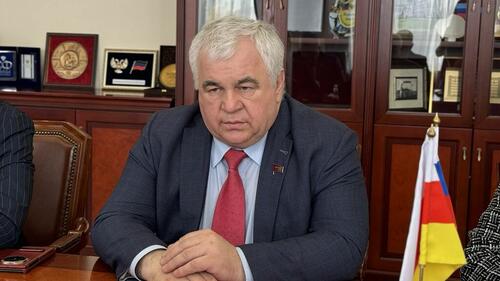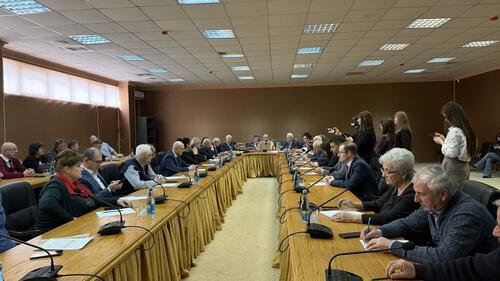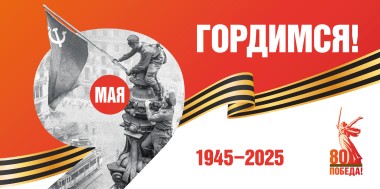The publication and translation of books into the Ossetian and Abkhazian languages will increase the awareness of Russians about these republics, Alexander Skakov, Deputy Director of the Institute of Oriental Studies of the Russian Academy of Sciences, believes.
During the Moscow-Tskhinval-Sukhum video bridge, he noted that a lot of work had already been done in the relations between Russia and South Ossetia.
“For example, before the adoption of the Concept of Russia's Humanitarian Policy Abroad, students from South Ossetia and Abkhazia already had the opportunity to study at Russian universities. Here it is important to think about the future of the Republic, so that students who receive higher education study in those specialties that are needed for the future of South Ossetia and Abkhazia. Yes, of course, it is very good when students study at MGIMO, but when there will too many diplomats over time, they will simply remain unclaimed in their republics,” Skakov said.
In his opinion, it is necessary to coordinate the specialties in which students will study according to quotas, so that training is in those areas that are in demand right now.
“As for other areas, here I am interested in cooperation in the scientific field. This is not only the holding of joint conferences, expeditions, the publication of scientific literature, but also the cooperation of museums, holding exhibitions of Abkhazia and South Ossetia in Russia, so that the Russians have a better idea of these republics,” the Deputy Director of the Russian Academy of Sciences believes.
According to Skakov, in order to improve the knowledge of Russians about the peoples of Abkhazia and South Ossetia, it is necessary to publish books, manuals, introduce courses in Russian universities on the history of these republics.
“I cannot name a single book published in Russia over the past 5 years about the history of South Ossetia. It is possible to publish translations so that the inhabitants of Russia, who read in the Abkhazian and Ossetian languages, have the opportunity to get acquainted with the culture of the republics and know their authors. To develop and maintain the level of the Ossetian and Abkhazian languages, translations are needed. For example, when a new interesting book is published, so that it is translated into the Abkhaz and Ossetian languages,” said the Deputy Director.
According to Skakov, in order to improve the knowledge of Russians about the peoples of Abkhazia and South Ossetia, it is necessary to publish books, manuals, and introduce courses in Russian universities on the history of these republics.
About the tourist potential of South Ossetia
The first thing you should pay attention to is the city of Tskhinval.
“The condition of old Tskhinval is not very good. After the war, much was destroyed. Most of the buildings were not restored, but demolished, nevertheless, something remains and it needs to be preserved, protected and possibly used for tourism purposes,” Skakov believes.
He has noted that there are many interesting temples in South Ossetia that may be of interest to tourists.
“There are many temples in the Republic, including those of the early middle Ages, which are unique for the South Caucasus as a whole. If you keep them in good condition and make them part of tourist routes, it would be very attractive for many Russian tourists,” Skakov has added, noting that the tourism potential of the Republic has not yet been fully used.
Head of the Analytical Department of the Presidential Executive Office of South Ossetia on the implementation of the stages of the Concept of the Humanitarian Policy of the Russian Federation abroad
In the near future, the development of specific programs in the relevant departments that are affected by the concept will begin, said Yury Vazagov, head of the analytical department of the Presidential Executive Office, during the video bridge of the Moscow-Tskhinval-Sukhum teleconference.
“Accordingly, the study of joint projects will begin with colleagues from the DPR, the LPR, Abkhazia, and this work will take some time. I believe that a counter initiative should follow from the republics affected by the Concept. I think that we should offer some solutions in order to also identify priorities that would be more interesting for us in the current conditions,” Vazagov said.
He agreed with the opinion of Alexander Skakov, Deputy Director of the Institute of Oriental Studies of the Russian Academy of Sciences, that the development of archeology and science was very important for the Republic.
“The older generations of scientists from Russia, South Ossetia and Abkhazia were in very close, friendly relations, which contributed to fruitful cooperation. Now, in my opinion, young generations of scientists do not have such close cooperation. I think this is a serious omission. Taking advantage of the adoption of the Concept, we must eliminate this omission, since the opportunity for interaction is huge,” Vazagov believes.
According to him, the younger generation should be actively involved in the upcoming projects.
“In the political and other spheres of our countries, young people often do not have the basis of strong, friendly ties that we have. Taking advantage of the projects that will be implemented within the framework of the Concept, we need to actively involve young people so that young people from Abkhazia, Russia and South Ossetia know more about our common history, common values, goals and tasks that our countries face,” Vazagov said.
He noted that the adoption of this document was more than timely, given the situation that is developing around Russia and its allies.
“There is a lot of work to be done to cope with the challenges and issues that will face us in the near future,” the speaker added.
Vazagov has added that it is necessary to continue discussions in a similar format, but with the involvement of specialists, for the expert discussion of upcoming projects within the framework of the Concept, “since even a small conversation during the video bridge made it possible to identify a number of topical issues, which will increase the efficiency of the implementation of upcoming events that will be undertaken within the framework of the Concept of Russia's Humanitarian Policy Abroad".
On September 5, Russian President Vladimir Putin approved the Concept of Russia's Humanitarian Policy Abroad. The document says that the priority of Russia's humanitarian policy abroad will be to expand cooperation with the countries of the CIS, Abkhazia, South Ossetia, the DPR and the LPR.







